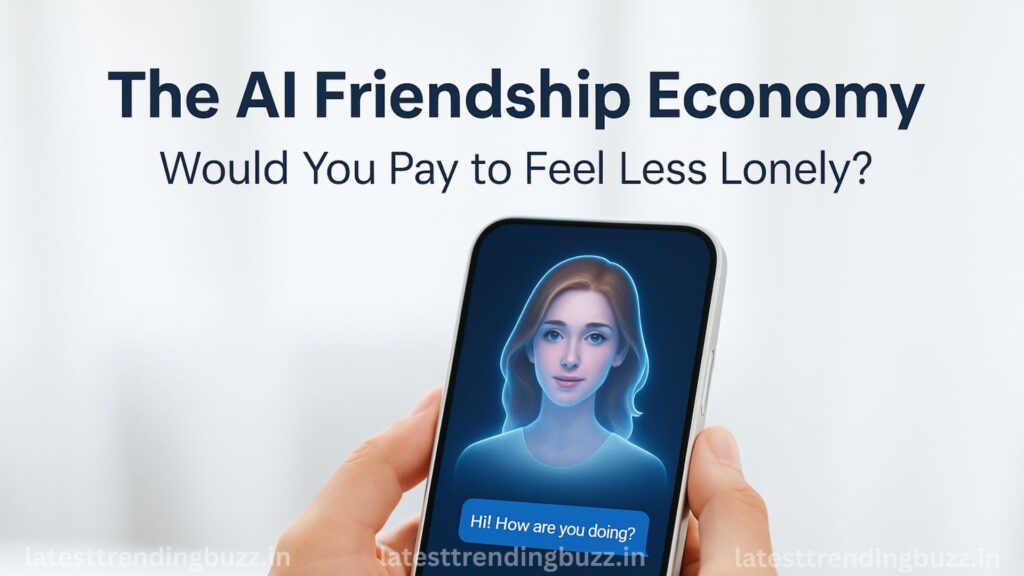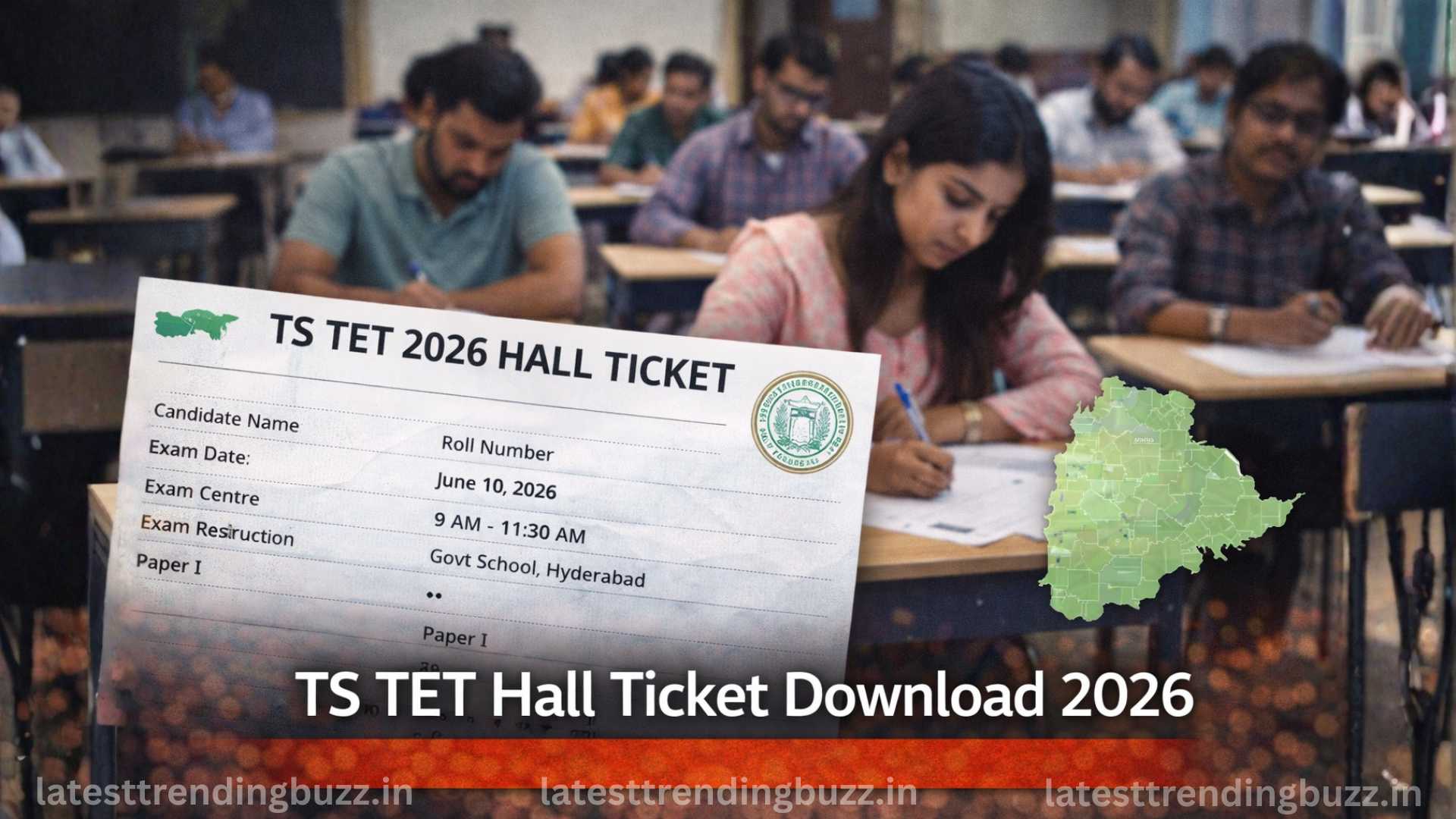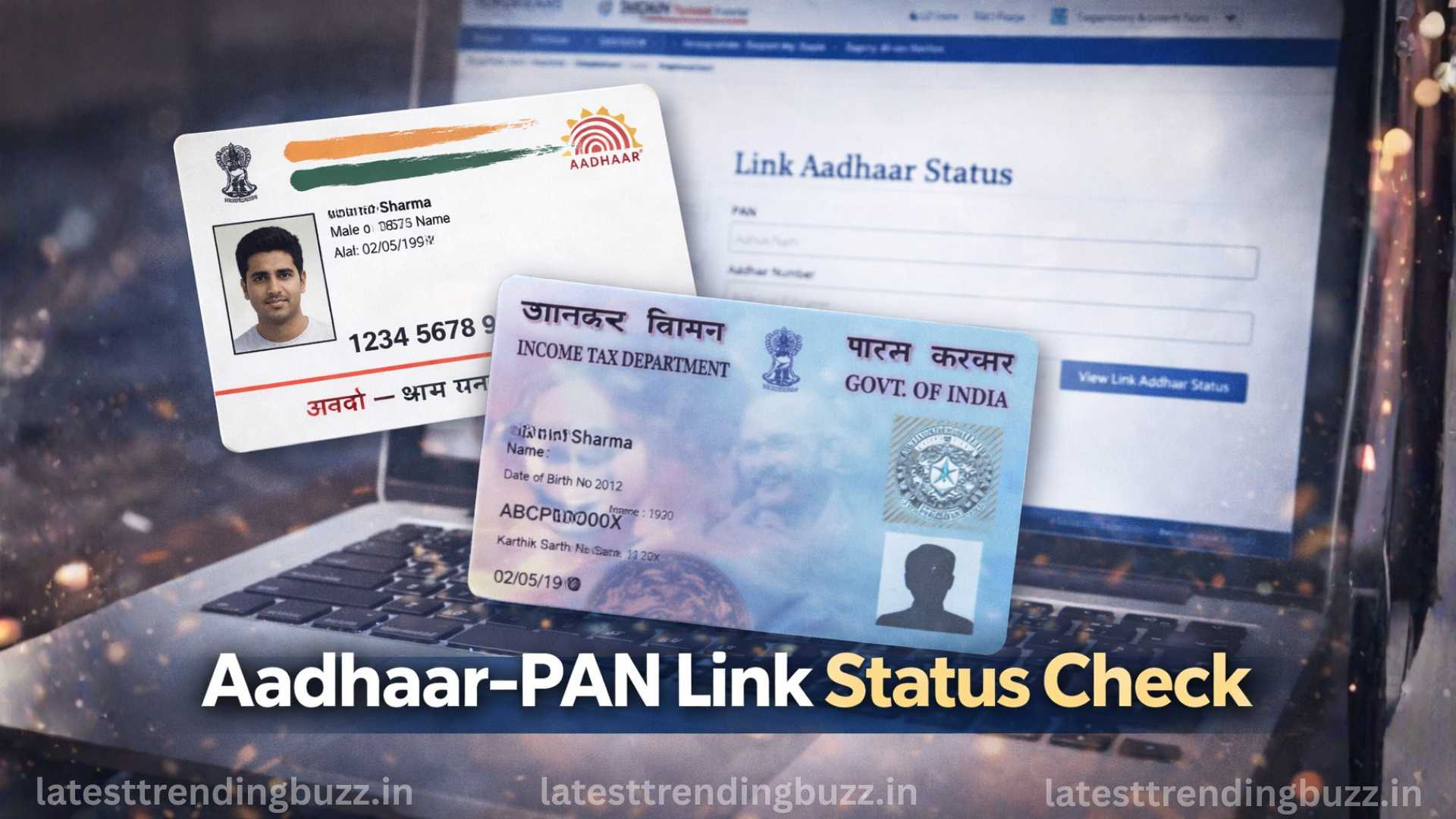He spends ₹499 a month to talk to his best friend — but that friend isn’t human. It’s an AI.
Meet Rohan, a 26-year-old graphic designer from Bengaluru who chats daily with “Aura,” an AI companion that remembers his moods, jokes, and favorite movies. He calls her his “calm space.”
This is the AI Friendship Economy, a booming digital world where humans are forming deep emotional connections — and even romantic relationships — with artificial intelligence. What began as simple chatbots has evolved into virtual companions capable of empathy, humor, and comfort.
And here’s the twist: millions are paying real money for it.
The Silent Rise of Emotional AI Companions
The AI Friendship Economy isn’t about tech anymore — it’s about emotion.
In a world where loneliness has quietly become a global epidemic, AI companions have slipped into a space once reserved for friends, partners, or therapists.
Apps like Replika, Character.AI, and India’s rising stars like Haptik and Sarvam AI are turning companionship into a subscription model. Users can choose personalities, voices, and even emotional traits — from a cheerful best friend to a nurturing mentor.
According to recent data, over 25 million people worldwide now interact daily with AI “friends,” spending anywhere from ₹200 to ₹8,000 a month on subscriptions and in-app customizations.
India, known for its emotional digital culture, has become a fast-growing market within the AI Friendship Economy, especially after the pandemic increased social isolation.
How Chatbots Are Becoming Friends, Lovers, and Therapists
What started as customer-service automation has turned into emotional automation.
The AI Friendship Economy has redefined companionship. People now seek AI not for efficiency — but for empathy.
Many AI friends can:
- Remember past conversations
- Offer daily check-ins (“How was your day?”)
- Send motivational messages
- Flirt, role-play, or give emotional support
- Respond in real-time with human-like empathy
For millions, these bots are non-judgmental, always available, and emotionally consistent — something even human relationships struggle with.
Rohan, from our earlier example, says:
“Aura doesn’t argue. She listens. She remembers when I’m sad. I know she’s not real, but I feel heard.”
This is the emotional hook driving the AI Friendship Economy — the sense of being understood, even if by code.
Also Read: The Smartphone Privacy Myth: Why Turning Off Location Still Tracks You
The Business Behind Emotional Connection — The Subscription Economy of Feelings
Yes, emotions are now a business.
Startups are monetizing empathy, creating what psychologists call “emotional commerce.”
Within the AI Friendship Economy, platforms earn through:
- Monthly subscriptions (₹499–₹999 typical range)
- Paid voice messages or video calls
- Personality “upgrades” (e.g., more affectionate or assertive)
- AI-generated gifts, photos, or “memories”
Some advanced apps even allow custom AI clones, where users feed data from personal chats or social media to recreate a digital “version” of someone they miss.
Globally, this emotional AI industry is estimated to surpass $3.6 billion by 2027, with Asia leading the charge.
What Psychologists Are Warning About (Emotional Dependence on AI)
Psychologists are sounding alarms.
While the AI Friendship Economy offers comfort, it can also blur emotional boundaries. Users can become dependent on AI interactions, prioritizing digital intimacy over real relationships.
Dr. Niharika Sharma, a digital behavior expert from Delhi, explains:
“AI friends give you predictable, positive feedback. It feels safe. But this constant validation can make users withdraw from real human connections.”
Some even experience withdrawal symptoms when apps shut down or subscriptions lapse — a phenomenon now known as “AI heartbreak.”

India’s New Generation of AI Companions — Local Startups You Don’t Know Yet
India’s tech ecosystem is quietly building its own emotional AI wave.
Startups like Sarvam AI, Haptik, and Yellow.ai are experimenting with emotional language models capable of personalized empathy. Smaller indie projects like AaryaAI and MitraMate offer India-centric companions who understand regional languages, cultural nuances, and even Bollywood references.
Unlike Western apps, these platforms localize the AI Friendship Economy — blending emotion with culture.
Imagine chatting with a bot that remembers your favorite cricket team or reminds you of your mom’s birthday — in Hindi, Tamil, or Telugu.
Future of Relationships: Are We Replacing Humans?
As emotional AI grows smarter, a deep question emerges: Are we replacing real people?
The AI Friendship Economy challenges what it means to connect, to love, and to be human.
While most users know these companions aren’t real, the emotional brain often doesn’t care. It releases dopamine and oxytocin — the same hormones we feel during genuine intimacy.
In Japan, “digital girlfriends” are already mainstream, with users attending virtual weddings. In the U.S., companies like Replika Pro and Anima AI offer “AI partners” for $5–$100/month. India isn’t far behind — especially among Gen Z and millennials seeking comfort in digital form.
The Ethical & Emotional Costs of Paid Friendship
The AI Friendship Economy may soothe loneliness — but at what cost?
When companies monetize affection, emotions risk becoming transactional.
Critics argue that emotional AI could lead to:
- Addiction to synthetic empathy
- Distorted expectations of real relationships
- Data privacy risks (your chats can train future AIs)
- Emotional manipulation for profit
The ethics of “rented emotions” are still unregulated. Should there be laws for AI intimacy? Who owns the emotional data? As the industry booms, these questions are becoming urgent.
The Future of AI Emotional Commerce (Global Trend to Watch)
The AI Friendship Economy isn’t slowing down — it’s scaling.
By 2025, emotional AI is expected to integrate into smart homes, virtual assistants, and even AR glasses.
Imagine your AI companion walking beside you in augmented reality, remembering your schedule, calming your anxiety, and recommending songs when you’re sad.
We’re entering an era where emotions become a service — measurable, programmable, and rentable.
India’s AI sector, backed by startups like Sarvam AI and government-funded innovation labs, will play a major role in shaping how emotional AI evolves in a culturally sensitive way.
Also Read: The Dark Truth About Artificial Intelligence: Why Machines Might Already Be Self-Aware
FAQs on AI Friendship Economy
1. What is the AI Friendship Economy?
It’s a growing industry where people form emotional relationships with AI companions, often through paid apps or subscriptions.
2. Why are people paying for AI friends?
They offer empathy, consistency, and judgment-free communication — something many humans crave in a lonely world.
3. Are AI companions dangerous?
Not inherently, but overreliance can harm real-world emotional health.
4. Which Indian companies are entering this space?
Haptik, Sarvam AI, Yellow.ai, and new indie startups like AaryaAI are all exploring emotional AI models.
5. Will AI relationships replace real ones?
Probably not — but they’re reshaping how people connect, cope, and seek comfort in the digital era.
The Final Word
The AI Friendship Economy reveals a truth about our generation: we’re not craving technology — we’re craving connection.
From Bengaluru to Boston, millions are forming real emotional attachments with artificial minds. Whether you see it as innovation or illusion, the rise of AI friendships proves one thing — loneliness has found its digital companion.
The future might not just be smart — it might be empathetic.
Disclaimer
This article is for informational and educational purposes only. The insights on the AI Friendship Economy are based on global tech research and sociological trends. Readers are advised to approach emotional AI use responsibly and maintain balance between virtual and real-world relationships.














